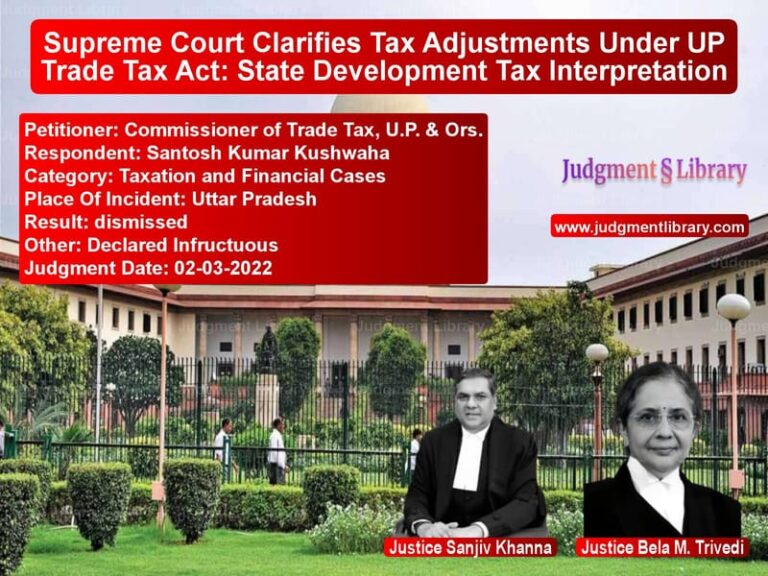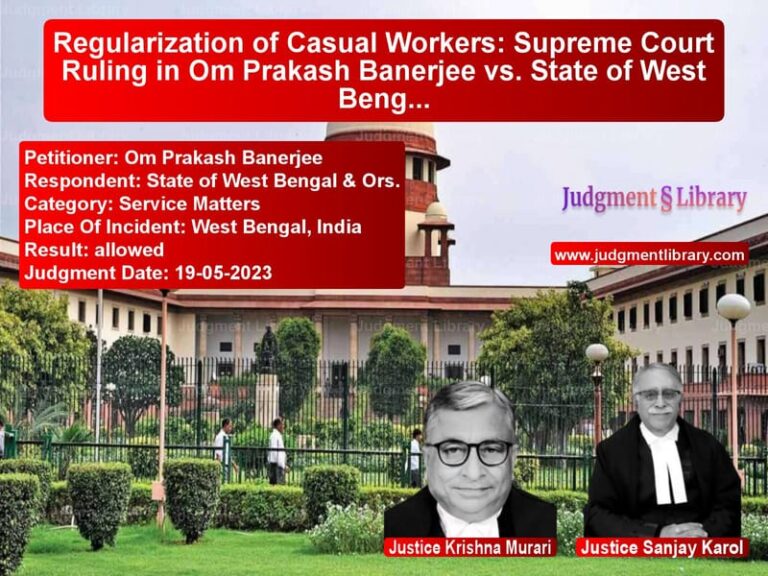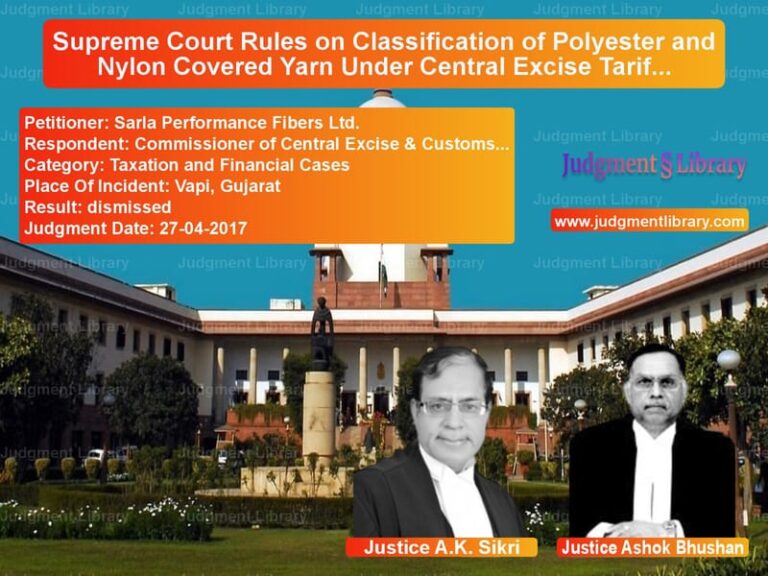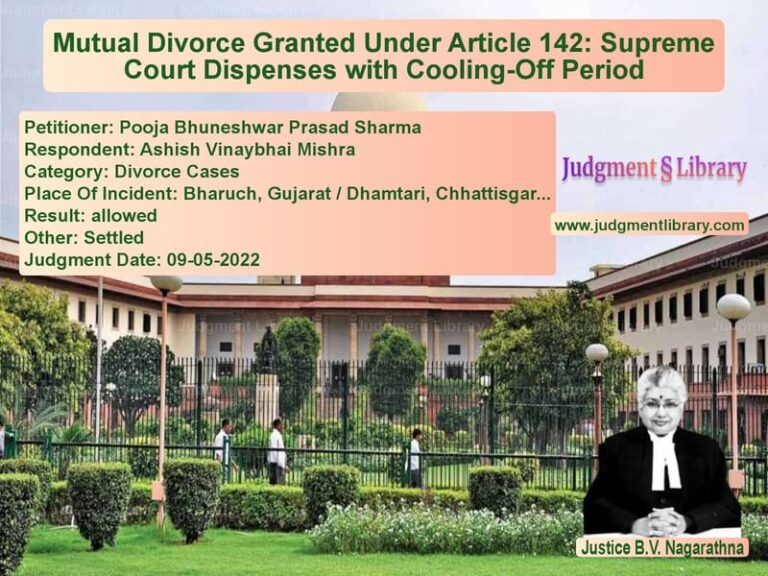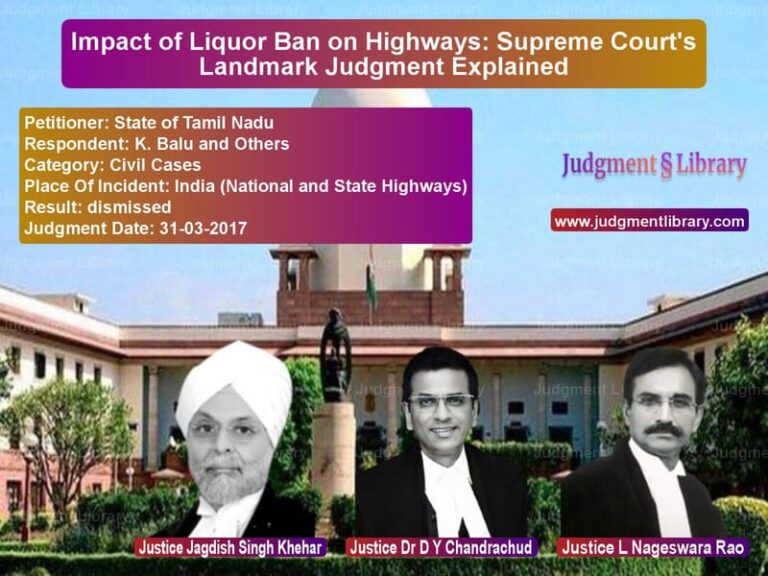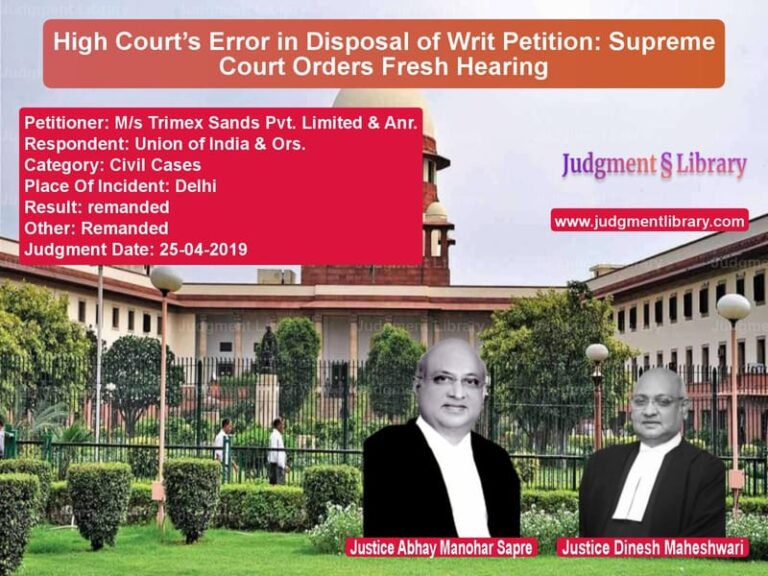Bank’s Liability in Insurance Claims: Supreme Court Verdict on SBI vs. New India Assurance
The case of State Bank of India & Anr. vs. New India Assurance Company Limited is a landmark judgment clarifying the liability of banks in insurance claims. The Supreme Court ruled that banks are not responsible for settling insurance claims of borrowers unless explicitly stated in the contract. This decision protects financial institutions from undue liabilities arising out of insurance disputes.
Background of the Case
The dispute originated from a loan agreement between State Bank of India (SBI) and a borrower on November 14, 2005. As per the agreement, the borrower was required to insure all assets charged to the bank. In compliance, the bank arranged an insurance policy for the borrower through its existing tie-up with New India Assurance Company Limited.
A fire broke out on the borrower’s premises on February 15, 2007, causing extensive damage. However, when the borrower submitted a claim, the insurance company refused to process it. This led the borrower to file a consumer complaint before the State Consumer Disputes Redressal Commission (SCDRC), Andhra Pradesh.
State Consumer Commission’s Decision
On November 17, 2014, the SCDRC ruled in favor of the borrower and directed:
- The bank to forward the insurance claim to the insurance company.
- The insurance company to process the claim as per law.
- Payment of Rs. 50,000 as compensation and Rs. 7,000 as costs to the borrower.
The ruling did not impose any direct liability on SBI.
Appeal to the National Consumer Disputes Redressal Commission (NCDRC)
The insurance company challenged the SCDRC order before the National Consumer Disputes Redressal Commission (NCDRC). On February 6, 2019, the NCDRC overturned the SCDRC’s ruling and made SBI liable for the claim.
SBI then appealed the decision in the Supreme Court.
Arguments by the Petitioner (State Bank of India)
SBI argued:
- The SCDRC’s order only directed the bank to forward the insurance claim, not to compensate the borrower.
- The borrower did not challenge the SCDRC’s decision, meaning it had accepted the ruling.
- The borrower had already settled all dues with the bank under the SARFAESI Act, 2002 and received a ‘No Dues’ certificate.
- The borrower had filed an affidavit agreeing to withdraw all claims against the bank.
Arguments by the Respondent (New India Assurance)
The insurance company defended the NCDRC’s decision, stating:
- The insurance claim was submitted six and a half years after the fire, making it time-barred.
- The bank was responsible for ensuring compliance with insurance requirements and timely claim submission.
Supreme Court’s Key Observations
The Supreme Court ruled in favor of SBI, making the following observations:
- The borrower had accepted the SCDRC’s decision and did not appeal against it.
- The only direction in the SCDRC’s order was for the bank to forward the claim, not to compensate the borrower.
- The borrower and the bank had settled all outstanding disputes under a One-Time Settlement (OTS) agreement.
- There was no contractual obligation for the bank to pay the insurance claim.
- The insurance claim was filed over six years late, making it legally untenable.
Key Judicial Statements
The Supreme Court emphasized:
“A bank’s duty is limited to facilitating insurance coverage for the borrower; it does not extend to bearing the burden of unpaid claims unless expressly agreed.”
Regarding the settlement between the borrower and the bank, the Court observed:
“A borrower who has settled all claims under an OTS scheme cannot subsequently revive claims against the bank.”
Final Verdict
The Supreme Court allowed the appeal and:
- Set aside the NCDRC’s order making SBI liable.
- Reaffirmed that SBI’s role was only to facilitate the claim process.
- Directed the bank to withdraw its deposit from the Supreme Court registry.
- Ruled that the insurance company was justified in rejecting the claim due to the delay.
This judgment clarifies that banks cannot be held liable for insurance claims unless explicitly stated in the loan agreement. It also highlights the importance of timely claim submissions.
Petitioner Name: State Bank of India & Anr..Respondent Name: New India Assurance Company Limited.Judgment By: Justice Dhananjaya Y Chandrachud, Justice Indu Malhotra.Place Of Incident: Andhra Pradesh.Judgment Date: 07-02-2020.
Don’t miss out on the full details! Download the complete judgment in PDF format below and gain valuable insights instantly!
Download Judgment: State Bank of India vs New India Assurance Supreme Court of India Judgment Dated 07-02-2020.pdf
Direct Downlaod Judgment: Direct downlaod this Judgment
See all petitions in Insurance Settlements
See all petitions in Commercial Insurance Disputes
See all petitions in Banking Regulations
See all petitions in Judgment by Dhananjaya Y Chandrachud
See all petitions in Judgment by Indu Malhotra
See all petitions in allowed
See all petitions in supreme court of India judgments February 2020
See all petitions in 2020 judgments
See all posts in Insurance Cases Category
See all allowed petitions in Insurance Cases Category
See all Dismissed petitions in Insurance Cases Category
See all partially allowed petitions in Insurance Cases Category


